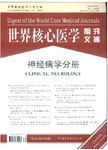缺血性卒中开始时使用降脂类药物与死亡率降低相关
Lipid-lowering agent use at ischemic stroke onset is associated with decreased mortality作者机构:Dr.Neurological Institute 710 West 168th Street New York NY 10032 United States
出 版 物:《世界核心医学期刊文摘(神经病学分册)》 (Digest of the World Core Medical Journals:Clinical Neurology)
年 卷 期:2005年第1卷第11期
页 面:57-57页
学科分类:1002[医学-临床医学] 100204[医学-神经病学] 10[医学]
主 题:缺血性卒中 降脂类药物 卒中发作 神经保护作用 他汀类药物 城市人群 神经科医师 还原酶抑制剂 比值比 可信区间
摘 要:Background: 3-Hydroxy-3-methylglutaryl-coenzyme A reductase inhibitors (statins), the most frequently used lipid-lowering agents (LLAs) have neuroprotective effects in rodent models of ischemic stroke. The authors hypothesized that patients with ischemic stroke taking LLAs would have better outcomes than patients not taking LLAs. Methods: The Northern Manhattan Study is a population-based study designed to determine stroke incidence and prognosis in a multiethnic, urban population. Northern Manhattan residents age 40 years or older diagnosed with their first ischemic stroke were eligible. Patients or their proxies were interviewed regarding medications being taken at home before stroke onset. The NIH Stroke Scale was used to assess stroke severity, categorized as mild (≤5), moderate (6 to 13), or severe (≥14), and the Barthel Index at 6 months to assess functional outcome. Clinical worsening in hospital was recorded by trial neurologists. Odds ratios and 95%CIs for association of LLA use and stroke severity, mortality, and functional outcome were calculated using logistic regression. Results: Of 650 patients, 57 (8.8%) were taking LLAs. The majority (90.9%) of LLA users were taking a statin. Clinical worsening in hospital occurred less frequently among patients taking LLAs at stroke onset (6.3%vs 18.2%; p=0.04). Ninety day mortality was lower in those taking LLAs (1.8%vs 10.6%, p=0.03). The proportion of patients with severe stroke among those taking LLAs was not lower (10.7%vs 16.8%, p=0.39). Conclusion: Patients taking lipid-lowering agents (LLAs) at the time of an ischemic stroke may have lower poststroke mortality and a lower risk of worsening during hospitalization. Prospective studies are warranted to determine whether LLAs, and statins in particular, have neuroprotective properties or other beneficial effects in acute ischemic stroke.



